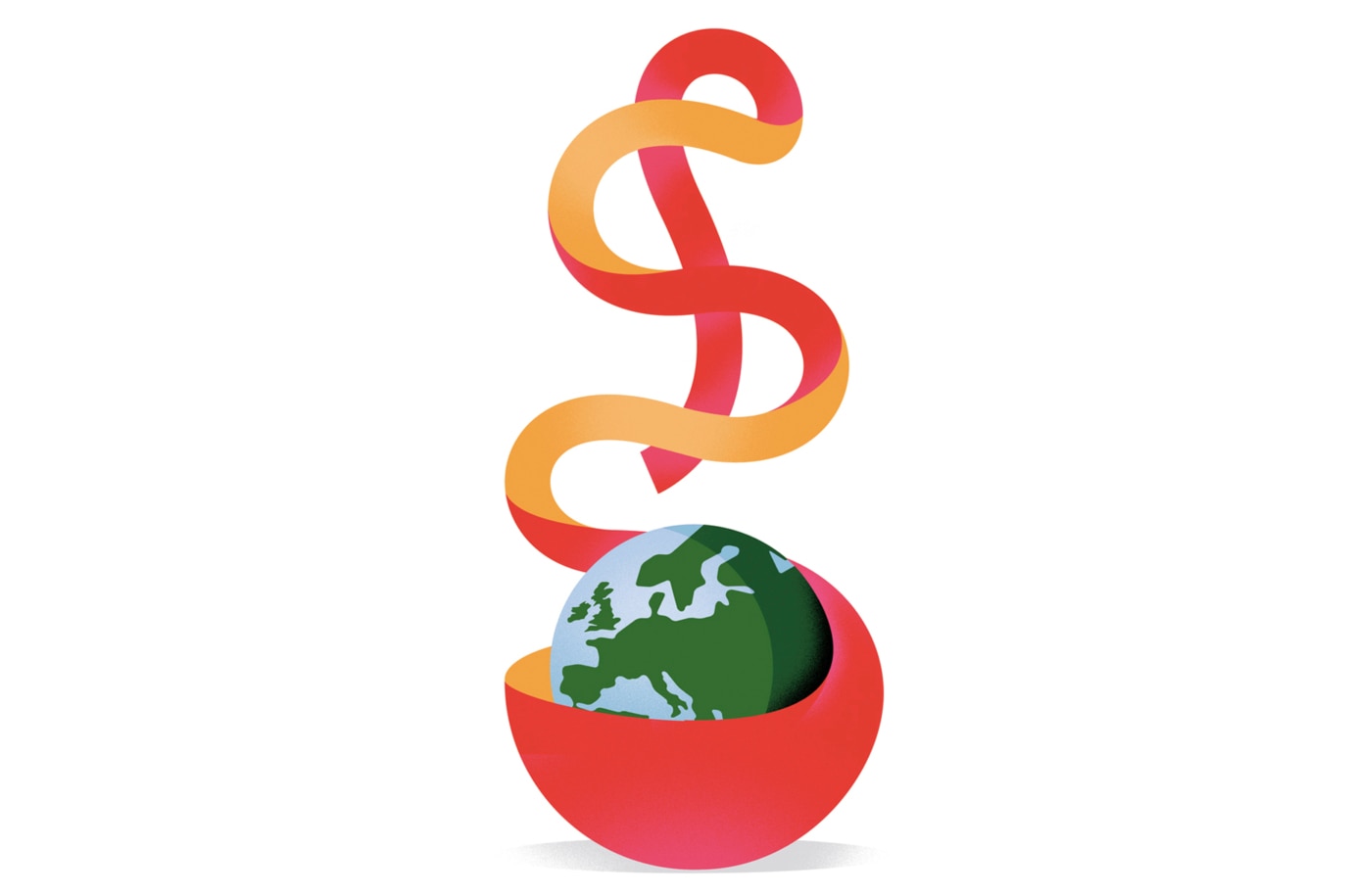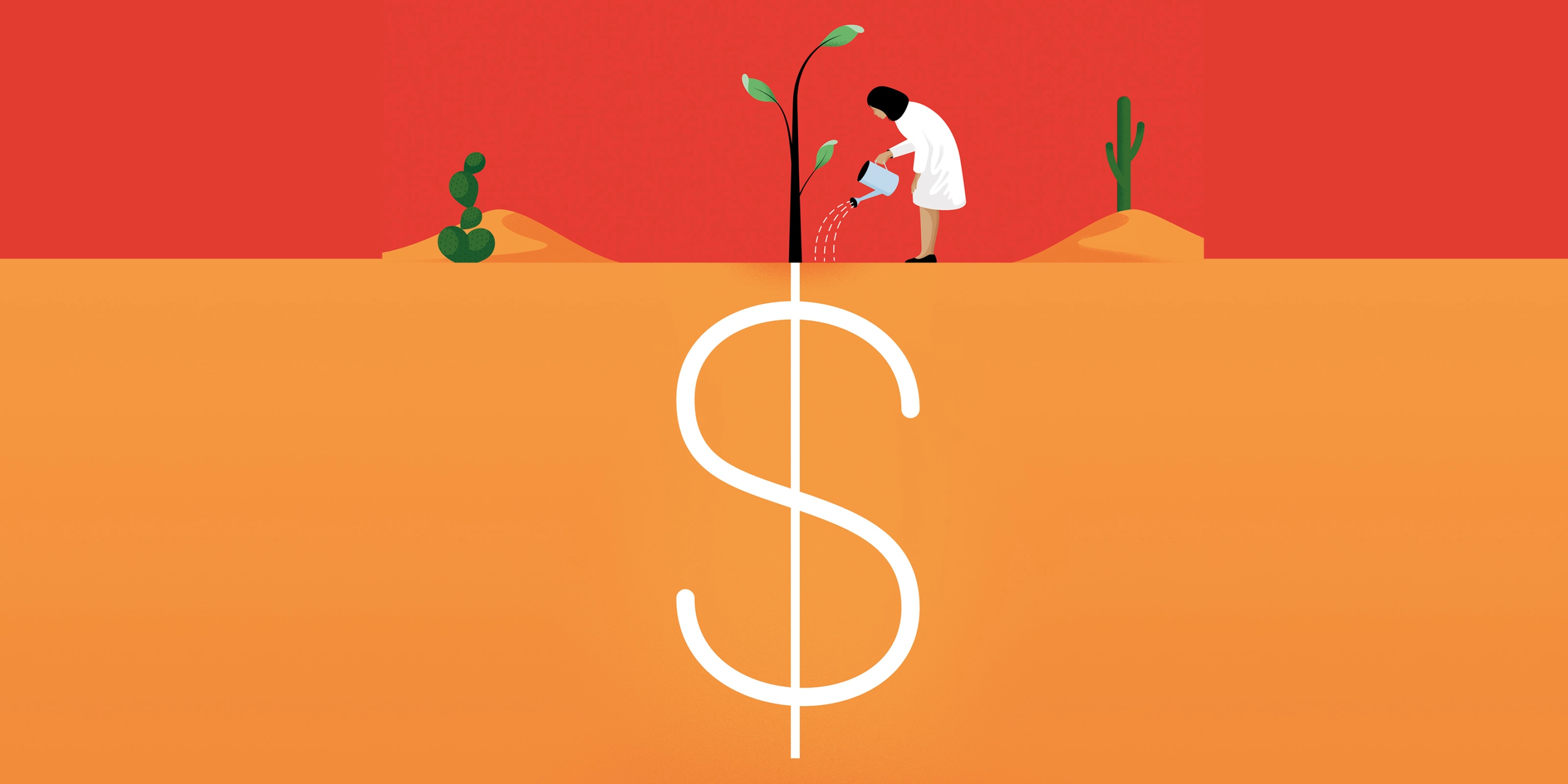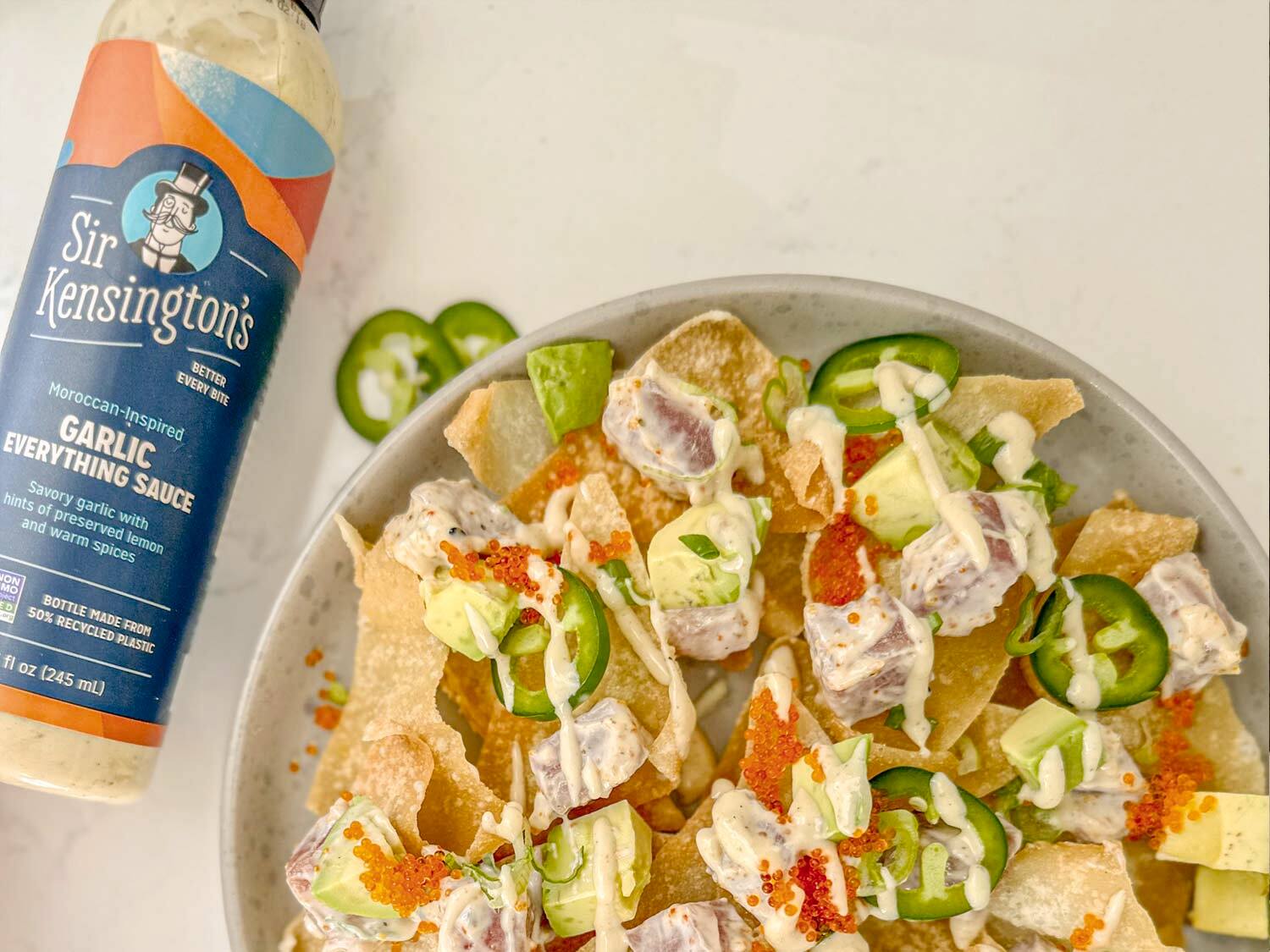Integrity report
The chimera of conscious capitalism
Words by Sophie Monks Kaufman
Illustration by Nathalie Lees
I was born into a socialist family in London during the 1984 UK miners’ strike. My first political act was near instant as my dad donated £8.50, my birth weight, to The Miners’ Solidarity fund —a pot of money set up to support them as they sacrificed a salary protesting planned pit closures.
Prime Minister Margaret Thatcher proved a ruthless opposition. Despite the yearlong strike, the pit closures went ahead. Many former mining areas remain in poverty to this day, echoing the left-behind nature of the steel industry in the Rust Belt states of America.
My early memories are tinged with the hatred that emanated from adults around me towards Thatcher. My dad was a negotiator for the Transport and General Workers' Union—one of the largest general trade unions in the United Kingdom and Ireland—during the ’80s, when union-busting laws sought to strangle their advocacy for workers' rights.

All this to say: it has been instilled in me since childhood that progress towards equality is not led from above; it forces its way from the grassroots. I was brought up to view capitalism as something that exacerbated inequalities, rather than worked to solve them. So the recent popularisation of the concept of ‘conscious capitalism’ is something I’ve struggled to get my head around. Confronted with a new boom of friendly multinationals, with commitments to sustainability, gender equality, and diversity and inclusion, my gut reaction is that they are cynically shape-shifting in order to meet with the current cultural landscape, rather than pursuing a genuine interest in social good.
Admittedly, I have never previously bothered to research the minutiae of this movement. So, now, I am doing so, with a skeptical yet open mind, guided by people deep in the trenches of the practice, all of whom were generous enough to offer their time and expertise. This is not an exhaustive analysis of the state of conscious capitalism; rather a personal journey of discovery.
Although the concept of Corporate Social Responsibility (CSR: a strategy or program aimed at creating a social impact) has been in business glossaries for decades, ‘conscious capitalism’ rose to the fore in 2013 following the publication of Conscious Capitalism: Liberating the Heroic Spirit of Business, a New York Times bestseller co-authored by Raj Sisodia and John Mackey, the CEO of Whole Foods. It posed a challenge to the prevailing orthodoxy of Milton Friedman’s unchecked monetarism (Thatcher and Reagan were both devotees) by arguing that business and capitalism could be harnessed for social good by embracing four tenets: ‘higher purpose’, ‘stakeholder integration’, ‘conscious leadership’, and ‘conscious culture and management’.
In response, many business leaders took up the baton.
“I don’t think it’s any longer seen as enough to have a CSR strategy,” says Chris Turner, Executive Director at B Lab UK. Turner cites “scope” as the difference between CSR and conscious capitalism, arguing that the former is unlikely to have any real influence on the business at large.
By contrast, B Lab (the B is short for ‘Benefit’) is a charity that incentivizes corporations to bake social impact into their DNA by offering ‘B Corp’ status to businesses that meet their standards. “As a business, you can’t just exist to grow and make more money for your shareholders,” adds Turner. “You need to think about what your purpose is in the context of the stakeholders.”
One of the two key criteria for certifying as a B Corp is a change from traditional corporate governance (serving the interests of officers, directors, and shareholders), to stakeholder governance (serving the interests of workers, customers, the community, the environment).
The second criteria is a verified score of over 80 points on a free checklist that measures social and environmental performance, legal accountability, and transparency. While there are currently close to 1,400 registered B Corps in the US, a further 70,000 use the free checklist criteria to manage their impact. These figures for the UK are 500 and 15,000 respectively. Globally they are 3,900 and 195,000.
Torani, a San Francisco-based company that makes syrups and sauces, became a US B Corp in January 2019 with a score of 87.6. (The average score is 93). Their CEO, Melanie Dulbecco,
has been with the company for 30 years, arriving there after stints as a congress staffer and time spent working at a non-profit.
Dulbecco was the ninth person to join Torani (they now employ close to 250) and prides herself on their “person first” approach. This has meant no lay-offs in a 96-year history and includes swapping performance appraisals—“We think they’re horrible and a huge waste of time”—
for a system called “contribution management”, which sees each employee, including Dulbecco, given a manager-coach who will check in annually to talk career development.
“We’re not orienting their training around what we want them to do in their current job,” she says. “It’s around what their interests are. What that leads to is opportunities for career mixology.”
Dulbecco serves on the board of SHE-CAN (Supporting Her Education Changes A Nation), an organization that identifies young women with leadership potential in post-conflict countries (Rwanda, Liberia, Cambodia and soon, Guatemala) and pairs them with a mentor who helps them to win a scholarship to an American university. The young women then return to their communities with an international network to support them in enacting their business dreams.

Noella Ingabire, the 22-year-old mentee of Dulbecco, has called the Rwandan capital, Kigali, home since the age of five. Through SHE-CAN, Ingabire won a scholarship to study economics at Wellesley College in Massachusetts: when we speak, she is on a year abroad at Yonsei University in Seoul, one of the top three universities in South Korea.
I ask Ingabire if there has ever been an uncomfortable sense of white saviorism to the project. “I don’t think those thoughts come to me,” she says. “The thought itself is that they’re trying to help us become leaders, and eventually we go back home and we use what we learned to change the country. We have this network of women and we ourselves are leaders—we’re going to help build the next generation.”
Ingabire is currently working on the details of two plans she wants to pursue upon returning home in 2022. Inequality is at the forefront of her mind. “In Rwanda and in Burundi, people in the city tend to live quite well, but the further you go from the capital city, the poorer people are,” she explains. She is hoping to launch a food company that operates on the principle of gleaning, gathering, distributing and monetising harvest waste for farmers. The second goal is to start an agency that offers support for people who want to start businesses.
Through her work with both SHE-CAN and Torani, Dulbecco belongs to a community of like-minded conscious capitalists. She is alive to the challenge of putting stepping stones in the path of systematically disenfranchised people. “There’s so much more that we can do and there are companies out there trying to figure these things out,” she says, before asking if I know of Joseph Kenner, who practices Open Hiring at Greyston Bakery. I tell her I do not. She hooks us up.
Greyston Bakery in Yonkers, New York, has been a B Corp since 2008 with an impressive score of 137.8. It was founded in 1982 by a JewishBuddhist monk named Bernie Glassman and Kenner became CEO in April 2020 after three years as VP. Kenner explains that Glassman was motivated to alleviate the poverty he saw in a community ravaged by homelessness, unemployment, AIDs, and criminal justice involvement. “His question was, ‘How do we uplift this community?’ And his solution was, ‘Let’s start with employment.’”
Open Hiring is a reinterpretation of this outlook. No résumé, no interview, no background check. People put their name on a list and are trained up on the job once their time comes—which,
on average, takes around six months. Kenner cites an Open Hiring pilot by The Body Shop in 2019 where they found that employee turnover fell from 43 per cent the previous year to 16 per cent and productivity increased— “Because they were giving jobs to people who really want it to work”.
The open hiring list circulates by word of mouth, so it’s not unusual to find members of the same family on the bakery floor. “Community wellness” is a key corollary too: a social worker sits in the bakery where the brownies are made; they are here to help with issues such as affordable housing and childcare.
Kenner is passionate about giving a chance to people who have been through the criminal justice system. “We’ve seen folks who come back to a world where, even though they’ve served their time, it’s like a life sentence because they can’t get a job,” he says. Crucially, though, he is careful to frame that social impact in the language of business. He believes in capitalism and he believes in growth.
“This is not some Kumbaya, all-social-services scheme that we’re cooking up. “It is a business model within [the] whole stakeholder capitalism concept. But it’s couched in a system and a philosophy that does say, everybody has something to contribute if you can just invest in them... capitalism as a system is not wrong—the practitioners are what we need to change.”
The English economist Kate Raworth would, however, disagree. During an appearance on How To Survive The Future podcast in November 2020, she argued: “The only option is to pull out our pencil and start again, we can’t fix the old model.”
She first sketched out that new model back in 2011: donut economics, so called because the inner ring concerns human rights (food, water, healthcare, a political voice, gender equality, income) and the outer concerns the systems of the planet. With this, the goal is to create an ecosystem governed by dynamic tension between all of these factors—“leave no one in the hole and don’t overshoot the ring of the planet”. In April 2020, a few months prior to her appearance on the podcast and at the height of the pandemic, Amsterdam signed up to the donut as its recovery model for the city. Interest followed from Brussels, Cambridge, Costa Rica and Cornwall, with endorsements coming from diverse luminaries such as David Attenborough and Pope Francis.
The celebrated writer, Anand Giridharadas, whose latest book is Winners Take All: The Elite Charade of Changing The World, is another critic of conscious capitalism. He told Business Insider in Feb 2019: “I think you and I would agree it would be weird if your approach to segregation in the 1940s in Alabama was to say: ‘Well, let’s create some points of light. Let’s create some white-owned restaurants that don’t mind having Black people, and we’ll celebrate that, and we’ll give them a certification, and we’ll put them on magazines and on change-the-world lists. Let’s celebrate the good.’”
Chris Turner is in agreement that things need to be changed at a systemic level. He has helped to create the Better Business Act, which B Labs are lobbying to make into UK law. “We elevate people and the planet to sit alongside profit delivering a triple bottom line—you could call it stakeholder governance—but that becomes the legal default for every business in the UK,” he says.
American B Labs, meanwhile, have a policy team who’ve created an equivalent legal form that is currently optional in 39 states. The long-term goal is to make it mandatory.
“If business is harnessed to address these big challenges, then that is certainly going to be the quickest way to tackle them,” Turner continues. “And it may not be possible to tackle these big challenges in time without business performing that role. So with that in mind, the question for us is going to be, ‘Can we do that quickly enough?’ If we can, then I think—not to be too hyperbolic about it—we save the world.”
It will take a village to save the world. Business is good at problemsolving, in some respects because stone-cold pragmatism trumps more abstract concerns. Yet abstract concerns are becoming more real by the day, forced onto the mainstream agenda by forest fires, creature extinction and violence on the streets. (Both Kenner and Dulbecco mention the murder of George Floyd during our conversations.)
One slippery issue is language. Capitalism, as I understand it,
cannot eradicate social inequality because by definition it’s individual profiteering which leads to power and money in the hands of the elite, who then protect their interests to the detriment of the 99 per cent. Yet the practitioners of conscious capitalism strain this definition almost
to the point of doublethink.
Kenner listens with interest as I talk about doughnut economics and says it sounds like stakeholder governance. Dulbecco talks about Torani as “a safe place to challenge the status quo”. When I say that the vibe doesn’t sound a million miles away from a socialist commune, she says that she thinks so too. “Although it would scare a lot of people to say that,” she notes. “In America you can’t just say those things... what might be different is that we have the discipline of business applied to it.”
Another thing they do at Torani is to go on ‘learning journeys’, where team members devote six months to answering a question and then harness the best ideas to use in the organization going forward. In summer 2020, Dulbecco herself embarked on one focused on justice, equality, diversity, and inclusion (JEDI) at work. She found that for companies to have a sustained impact, they need to develop their own language and framework—rather than adopt something from a consultant. In other words: people need to be spoken to in their language.
It’s true. Much as I would love for language to be an umbrella across the world, everyone is figuring out the best way to address their own audience. Partisan politics is such that certain words are loaded differently, with “socialism” still carrying the baggage of the red scare
in American culture.
I believe there will come a day when the only truly impactful option is systemic overhaul. But the majority of people have to be ready and, until they are, the work of conscious capitalists is priming their communities to expect a more holistic relationship between business and the wider world. To quote Martin Luther King Jr: “The arc of the moral universe is long, but it bends toward justice.”



